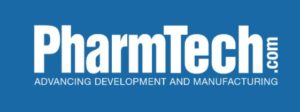Published Articles
 A: This is a great question. The draft guidance, titled Data Integrity and Compliance With cGMP was released in 2016 and is still current. In the introduction, FDA states, “The purpose of the guidance is to clarify the role of data integrity in current good manufacturing practice …” I don’t think the industry should be surprised by this guidance based on the number of recent warning letters issued with citations referencing questionable data integrity practices.
A: This is a great question. The draft guidance, titled Data Integrity and Compliance With cGMP was released in 2016 and is still current. In the introduction, FDA states, “The purpose of the guidance is to clarify the role of data integrity in current good manufacturing practice …” I don’t think the industry should be surprised by this guidance based on the number of recent warning letters issued with citations referencing questionable data integrity practices.
The guidance itself says:
“… FDA has increasingly observed CGMP violations involving data integrity during CGMP inspections.”
The guidance goes on to say:
“This is troubling because ensuring data integrity is an important component of industry’s responsibility to ensure the … quality of drugs, and FDA’s ability to protect the public health.”
Specifically question 16 asks:
“Should personnel be trained in detecting data integrity as part of a routine CGMP training program?”
The answer in the guideline is, of course, yes and cites 21 Code of Federal Regulations (CFR) 211.25 and 212.10, which require that employees have the “education, training, and experience, or any combination thereof, to perform their assigned duties.”
From an industry perspective, the requirement for data integrity training seems new, but it isn’t. It is normally referred to as good documentation practices (GDP), annual GMP training, and investigations and corrective action and preventive action (CAPA) training. The question is how does one communicate to others that this training regimen relates to proper data handling, which in turn helps eliminate data integrity issues.
cGMP Training
Annual cGMP training is integral to avoiding data integrity problems because it delineates what documents need to be maintained. If the GMPs require a document be preserved, one can assume it is a document that is subject to review and critique during an audit.
Focusing on the forms and records required allows one to direct their review efforts on the essential rather than on the superfluous documents that support the safety, efficacy, and quality of the products being manufactured. Once the company’s quality assurance (QA) department has identified these critical documents, the documentation group can then direct their efforts towards appropriately maintaining those documents.
GDP training
A critical element in preserving the integrity of the information contained in these records is related to GDP training. GDP training should explain to the employees the necessity of the document in relationship to the quality of the product.
GDP training should focus on the importance of the data being recorded, how to correct an error, how to document the reason for the error, explain the timeliness of the signature and date of the person who performed the operation and recorded the necessary information, as well as the role of the verifier’s signature for those steps in the operation that require a witness.
Electronic Signature
GDP training should also include an explanation of the review process and what the operator’s, verifier’s, and reviewer’s signatures means. The reviewer’s signature should be regarded as complementary to the original operator’s signature. It is there to support that the recording of the data was complete, accurately reflected the function or activity being documented, and that any operational errors that occurred were investigated and corrected appropriately.
If you are operating with electronic signatures and data collection systems, training should include discussion on the importance of password protection and the reason and rationale for not sharing passwords and accounts so that the integrity of the electronic system is not compromised.
CAPA training
Investigation and CAPA training should be taught to staff involved in the recording and reviewing of the documentation. It is important for these individuals to understand how deviations are investigated, if the investigation resulted in a CAPA, and what impact the investigation/CAPA results might have on the product.
It should also address how changes made to documentation as a result of the investigations/CAPA have been implemented in the quality management system. Documentation changes made as a result of investigation/CAPA conclusions should prompt retraining on the activity and should encompass any new documentation practices identified.
Internal Audit
Once the employees are trained in GMP, GDP, and investigations/CAPA training, the QA group should confirm the organization’s understanding of what they were taught through the internal audit review process. This should be viewed as a confirming activity that will strengthen the records, forms, reports, and manufacturing documents that support the product’s manufacturing and release.
Standard Operating Procedures (SOP)
Issues in documentation procedures identified through the internal audit process should be responded to and tracked in a similar manner, as the company would do for an external audit by a client or a regulatory agency.
The information collected during the manufacturing of the product from the receipt of the raw materials, the facility maintenance, the testing of the product up to the release of the product, and everything in between is crucial to defending the product once it has been released for patient use. It is crucial that this information be indisputable, whether it is electronic or paper.
Documentation
Bottom line, don’t over react to the guidance by sending your QA staff to criminal investigation training. Instead, utilize the cGMP training tools you already have in your quality system to reinforce the concept of data integrity throughout your training and audit processes. The best way to combat poor documentation is through the proactive inclusion of data integrity concepts, design, and implementation into your data collection systems whether they are manual or electronic in nature.
Article Details

Pharmaceutical Technology
About RCA’s Pharmaceutical Consulting Services
Regulatory Compliance Associates (RCA) has helped thousands of pharmaceutical companies meet regulatory, compliance, quality assurance, and remediation challenges. With more than 20 years of experience with FDA, Health Canada, EU and global regulatory agencies worldwide, Regulatory Compliance Associates® offers leading pharmaceutical consultants. We’re one of the few pharma consulting companies that can help you navigate the challenges associated with industry regulations.
Our pharmaceutical consulting firm includes over 500 seasoned FDA, Health Canada & EU compliance consultants and regulatory affairs experts who understand industry complexities. It’s a pharma consultancy founded by regulatory compliance executives from the pharmaceutical industry. Every pharmaceutical industry consultant on the Regulatory Compliance Associates team knows the unique inner workings of the regulatory process.
Client Solutions
Whether you’re in the product planning, development or pharmaceutical lifecycle management stage or need a remediation strategy for a compliance crisis, Regulatory Compliance Associates will guide you through every pharmaceutical consulting step of the regulatory process and create a customized approach depending on your product and your pharma company’s individual needs. Our regulatory compliance clients include:
- Companies new to FDA, Health Canada or EU regulations and regulatory compliance
- Start-up organizations with novel submissions to 510(k) submissions from multi-national corporations
- Investment firms seeking private equity due diligence for pre-acquisition and post-deal research
- Law firms seeking pharmaceutical consulting firm expertise in the remediation of warning letters, consent decrees, 483’s or import bans
Regulatory Affairs
Regulatory affairs is Regulatory Compliance Associates backbone. We exceed other pharma consulting companies with industry experts experienced in complexities of the pharmaceutical and biopharmaceutical industries. Our pharma consulting expertise spans all facets and levels of Regulatory Affairs, from Regulatory Support for New Products to Life Cycle Management, to other services like Outsourced Regulatory Affairs, Submissions, Training, and more.
As your partner, we can negotiate the potential assessment minefield of regulatory compliance services with insight, hindsight, and the clear advantage of our breadth and depth of knowledge and regulatory compliance consulting. We offer the following pharma consulting regulatory affairs services for pharmaceutical companies.
- New Product Support
- Product Lifecycle
- Other Regulatory Services
- Combination Products
Compliance Assurance
The regulations process surrounding pharmaceutical companies can be tricky for even the most experienced industry veteran to understand. Just one misstep could mean significant and lasting consequences for your business. At Regulatory Compliance Associates, we offer the pharma consulting experience and pharma consultants necessary to guide you through the quality compliance process.
- Assessments
- Audits
- Regulatory Agency Response
- Preparation and Training
- Inspection Readiness
- Data Integrity
Quality Assurance
Regulatory Compliance Associates Quality consulting includes assessments, strategy, implementations, staff augmentations, and identification of quality metrics to ensure continuous improvement. Our pharma consultants understand the strategic thinking needed to align your business needs and goals. Regulatory Compliance Associates quality assurance services include quality experts with experience spanning major corporations and start-ups. Our pharmaceutical consulting firm knows firsthand how to achieve, maintain, and improve quality, and we excel in transferring pharma consulting knowledge to your organization.
- 21 CFR Part 11
- Data Integrity
- Manufacturing Support
- Facility Support
- Quality Metrics
Remediation Services
Regulatory Compliance Associates has a proven remediation services approach to managing FDA Warning Letters, Consent Decrees, Remediation and other serious regulatory situations. Our pharma consultants know how to partner with executive, legal, and communication teams. Each RCA pharma consulting Expert will develop a response that will be accepted by the regulatory agency and be realistic to execute.
Regulatory Compliance Associates pharma regulatory consultants will develop a comprehensive proof book of documented evidence demonstrating the corrective action taken to remediate non-compliant issues. In addition, each Regulatory Compliance Associates pharma consulting Expert understands compliance enforcement. We’ll prepare a comprehensive pharma consulting strategy to assist in your remediation efforts, drive continuous improvement, and maintain regulatory compliance with the regulations.
- Regulatory Action
- Regulatory Compliance
- Regulatory Enforcement
- Warning Letter
- 483 Observation
- Oversight Services
- Risk Management Plan
About Regulatory Compliance Associates
 Regulatory Compliance Associates® (RCA) provides pharmaceutical consulting to the following industries for resolution of life science challenges:
Regulatory Compliance Associates® (RCA) provides pharmaceutical consulting to the following industries for resolution of life science challenges:
- Life Sciences
- Pharmaceutical
- Biologic & Biotechnology
- Sterile compounding
- Medical device
- Lab Testing
We understand the complexities of running a life science business and possess areas of expertise that include every facet of R&D, operations, regulatory affairs, quality, and manufacturing. We are used to working on the front lines and thriving in the scrutiny of FDA, Health Canada, MHRA and globally-regulated companies.
As your partners, we can negotiate the potential minefield of regulatory compliance and regulatory due diligence with insight, hindsight, and the clear advantage of our unique expertise and experience.
- Founded in 2000
- Headquartered in Wisconsin (USA)
- Expertise backed by over 500 industry subject matter experts
- Acquired by Sotera Health in 2021
About Sotera Health
The name Sotera Health was inspired by Soteria, the Greek goddess of safety, and reflects the Company’s unwavering commitment to its mission, Safeguarding Global Health®.
Sotera Health Company, along with its three best-in-class businesses – Sterigenics®, Nordion® and Nelson Labs®, is a leading global provider of mission-critical end-to-end sterilization solutions and lab testing and advisory services for the healthcare industry. With a combined tenure across our businesses of nearly 200 years and our industry-recognized scientific and technological expertise, we help to ensure the safety of over 190 million patients and healthcare practitioners around the world every year.
We are a trusted partner to 5,800+ customers in over 50 countries, including 40 of the top 50 medical device companies and 9 of the top 10 pharmaceutical companies.
Commitment to Quality
Our Certificate of Registration demonstrates that our Quality Management System meets the requirements of ISO 9001:2015, an internationally recognized standard of quality.
To begin the Regulatory Compliance Associates scoping process today, please enter your information in the blue form below and click the submit button at the bottom of the webpage.
Connect with RCA Today
Contact us to learn more about our regulatory compliance experts and how they can help



















